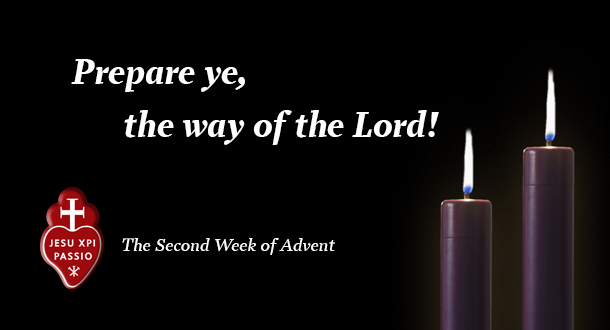
Second Sunday of Advent
Scripture:
Baruch 5:1-9
Philippians 1:4-6, 8-11
Luke 3:1-6
Reflection:
Wow, we are already in the Second Sunday of Advent. For many of us, and I include myself in this group, the First Sunday of Advent frequently gets lost amidst the Thanksgiving weekend.
Years ago, when I was studying theology, my preaching instructor said something that made a lot of sense to me. He said the season of Advent prepares us for Christmas, just like the season of Lent prepares us for the celebration of the Triduum. Of course, that is true but how that happens is the most important. He then he took it one step further and walked through a season of readings showing how they are steppingstones, and each step advances you in its mission. I recalled how my high school composition teacher spoke how one’s introductory paragraph is supposed to start a very broad encompassing the reader and gradually narrow the topic with each sentence till the final sentence is what your paper or composition focuses on. Advent is the exact same journey. It doesn’t start with stories of Jesus’ birth. It leads you to that story by starting exceptionally broad. Last week, Luke’s Gospel began the Advent journey with calamities. We were told that amidst all the calamities, raise your heads and stand before the Son of Man. We were reminded not to be weighed down but to be watchful and attentive. How appropriate for the times we live.
If listening to the gospel today doesn’t put an element of fright into your psyche, then you’re probably a little out of touch with first-century Israel. Luke mentions specific names: Tiberius Caesar, Pontius Pilate, Herod tetrarch of Galilee, and his brothers Philip and Lysanias. (He left out their father, Herod the Great) None of these names left a good taste in anyone’s mouth. The big three were tyrants, cruel and oppressive dictators, who cared very little about the common person. Luke is trying to say that of all the times of history this is one of the most difficult times to live in. And yet specifically, in amidst such tyrannical or oppressive times is when John the Baptist begins speaking loudly and boldly. Take note, his message at this point still is not about the coming of the Anointed One. His message of all things is a baptism of repentance for the forgiveness of sins. He is asking people to think differently and live differently which is the essence of the Greek word metanoia.
If you live in a joy-filled happy place all the time, then why do you need a savior? We can’t use the Advent season to fictitiously paint joy on our hearts, and peace in our city streets. Biblically speaking, we find Christ most profoundly when are willing to sit in a chaotic troublesome place and call upon God. Joy and peace promised us in the gospel never start with us. They start first and foremost with the mercy of God. What wisdom is ours when we listen to our spiritual elders? Think of the men and women who could sit in the midst of the chaos and call forth the spirit of God. I think of men such as Martin Luther King Jr. I think of countries such as South Africa. And indeed, repentance is a necessary step for the coming of Christ. How can we ask Christ to come into our hearts if we are not willing to change? How can we celebrate the incarnation if we refuse to forgive?
Lastly, I think it’s important to highlight another element in these Sunday Advent Readings for this new liturgical year. If you look them over you will notice these Sunday readings are not inclusive of the book of the prophet Isaiah. The truth is that each week we listen to a different prophet, and each prophet speaks to us of a promise that God makes. Last Sunday we listened to the prophet Jeremiah. This week the prophet Baruch says to take off your long faces. Look at the splendor of God which is before you. God will lead Israel with joy. God is filled with mercy and righteousness. While this reading may be over 2500 years old, could we possibly find a reading that is more applicable to us today? And coming up we have the prophets Zephaniah and Micah. For anyone who is looking for an Advent exercise this year, I couldn’t recommend anything better than every week spend some time with the prophet of the week. Who were they? What was their family and their cultural life like? What motivated them? What are they saying about God? How has God fulfilled the promise made to each of them? And how is their message speaking to me about the coming of God’s Anointed One?
Have a blessed Advent week.
Fr. David Colhour, C.P. is the local superior of St. Vincent Strambi Community in Chicago, Illinois.
